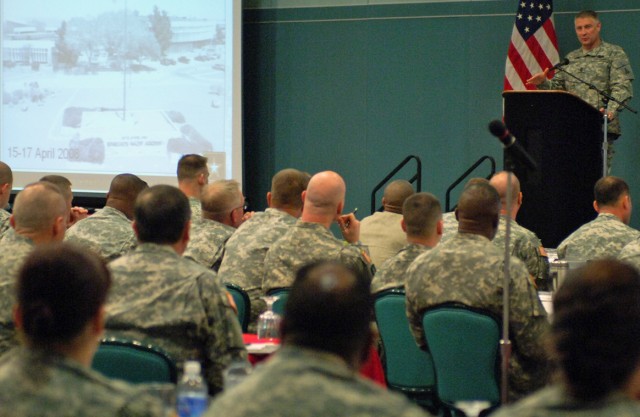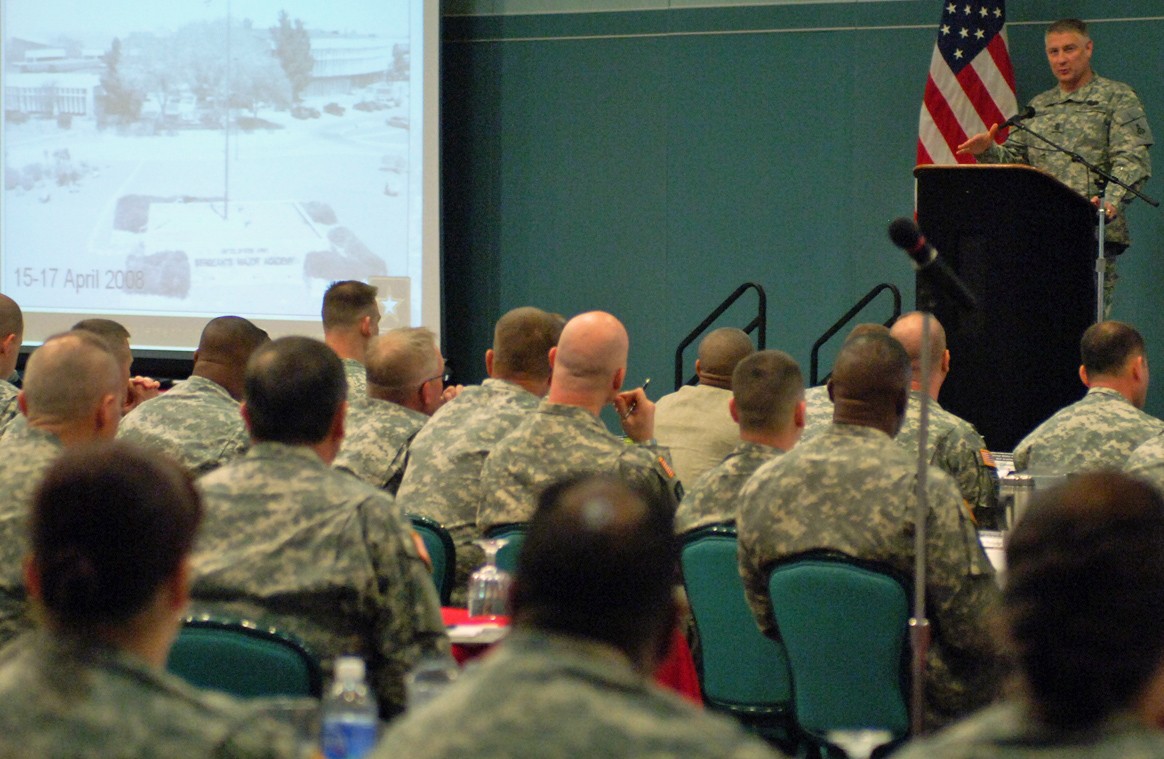
WASHINGTON (Army News Service, Nov. 24, 2008) - A redesign of the Army's noncommissioned officer education system will bring it's curriculum closer to what has been taught to officers in the past, said Command Sgt. Maj. Ray Chandler.
Chandler and his staff at the Sergeants Major Academy have the lead in making changes to courses taught at the Army's 30 NCO academies worldwide. He said the changes are on schedule to be implemented by September.
The changes include renaming the Army's intermediate-level NCO courses. The Basic Noncommissioned Officer Course, known as BNCOC, will become the Advanced Leader Course. The Advanced Noncommissioned Officer Course, or ANCOC, will become the Senior Leader Course.
"We've got a better-educated NCO corps than ever before," Chandler said, "so we've had to update the curriculum to take advantage of that higher education level, to support the full spectrum of operations in this era of persistent conflict."
The updated courses will better prepare Soldiers for greater decision-making and leadership responsibilities required in the global war on terror, Chandler explained. He said the new NCOES curriculum will focus more on the kind of critical thinking and problem-solving skills formerly reserved for officer-level instruction.
The Sergeants Major Academy at Fort Bliss, Texas, is the Army agency charged with implementing the NCOES transformation. As the academy's command sergeant major, Chandler has been at the forefront of that effort.
The new curriculum is being tested now at Fort Knox, Ky., and Fort Benning, Ga., and Chandler said it is expected to be ready for all of the Army's NCO academies by September.
"What we've been charged with is providing a cadre of flexible and adaptive leaders," said Fort Benning's Henry Caro NCO Academy commandant, Command Sgt. Maj. Zoltan James.
"A lot of these guys are leaders who have been in combat, they know what the fight is, and it gives them a forum for capturing and sharing that knowledge," James said about the new curriculum. "We put NCOs into situations where they need to think for themselves, instead of providing them answers based upon a training plan. We have changed our training culture, by using that process."
Curriculum at the U.S. Army Sergeants Major Academy is also being adapted to reflect the curriculum at the Command and General Staff College at Fort Leavenworth, Kan., said Chandler.
"CGSC has made its entire curriculum available to USASMA, which is in the process of adapting our curriculum to meet their needs," said CGSC deputy director, Marvin L. Nickels. "Adapting applicable portions of our curriculum will save them time. More importantly, it makes lots of sense for the Army's field-grade leaders and most-senior noncommissioned officers to share a common frame of reference. "
Sharing that frame of reference, Chandler said, is exactly what the updated sergeants major course aims to facilitate.
"We have a very large gap between what CGSC teaches its majors and what we've been teaching sergeants major," he said. "We want to marry those two skill sets together to capitalize on both their experiences to better support the commander."
While the NCOES redesign aims to meet the needs of the Army in the global war on terror, it focuses equally on the professional development needs of Soldiers.
With the new curriculum, said Chandler, "They are a better and more educated Soldier when they graduate, which is an immediate impact on their organization and their unit. It makes them more effective."
"But the increase in the curriculum will also provide the Soldier more college credits," he said, "which will support them in their personal education goals while they're in the Army and after the Army."

Social Sharing